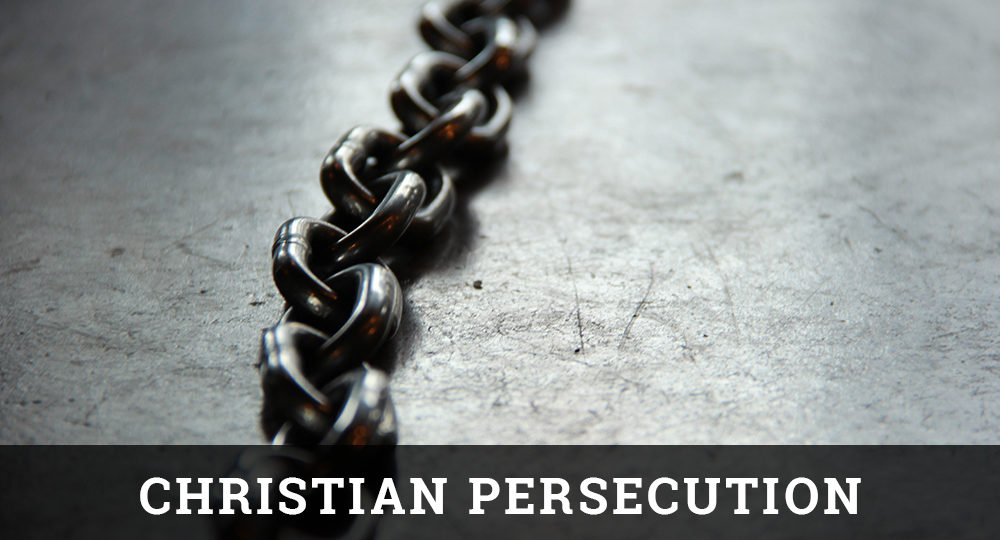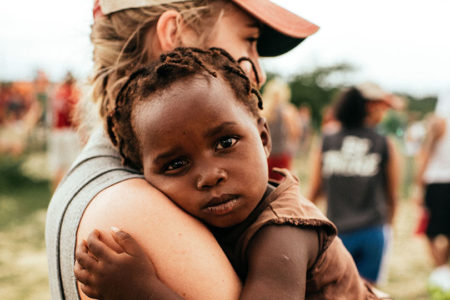Christian Persecution Sep/Oct 2017
“If loving and worshiping Christ is a crime, I am guilty as charged,” Egyptian believer Majed El Shafie told the judge. The Egyptian government had charged him with apostasy for leaving Islam, a crime punishable by death, according to Sharia (Islamic) law.
A lawyer trained in Alexandria, Egypt, El Shafie said Egypt’s persecution of its Christian minority moved him to examine the Bible. “You don’t torture or persecute somebody unless you are scared of the truth they carry. I started to read the Bible and believe in Christianity. I converted from Islam to Christianity.”
Upon hearing of his conversion and work to raise awareness of Egypt’s human-rights violations, authorities arrested El Shafie and tortured him for seven days. They shaved his head and hung him upside down, plunging his head in cold and hot water; beat him; tied him to a cross for two and a half days; cut his shoulder to the bone and put salt and lemon in the open wound; and released dogs to attack him.
Miraculously, the dogs refused to attack. “I prayed, and…the three dogs refused to attack me. They are trained to listen to their master, but it is in my opinion there is no higher master than Christ,” said El Shafie. His wounds landed him in the hospital, from which he escaped to Israel, the only neighboring non-Muslim country where he knew he would be safe.
El Shafie’s story is one of many featured in the Clarion Project’s new documentary, Faithkeepers. The film, which debuted in May in churches throughout the United States, chronicles the current humanitarian crisis and genocide affecting millions of Christians and other religious minorities in the Middle East.
In an interview with Israel My Glory, human-rights lawyer and Faithkeepers’ producer Paula Kweskin described the film’s purpose: “It’s about the story behind the headlines of the persecuted—primarily Christians, but not exclusively—who are living in the Middle East, to give a voice to their struggles, to learn their individual stories, and to hopefully inspire and awaken people in the U.S. to stand up and make a difference.”
The film presents many chilling statistics: In 1915, Christians made up 20 percent of the Middle East. Today, they constitute a mere 4 percent. Since 1975, more than 3.5 million Christians have fled their homes in Muslim countries to escape beheadings, kidnappings, rape, bombings, and torture. In Iraq alone, 1 million have fled in the last 10 years. In the past five years, around 700,000 Christians have fled Syria. And since the 1980s, around 1 million have fled Egypt.
Unfortunately, genocide is nothing new, the film explains. The current slaughters mirror those of Armenians and Jews during the early 1900s. From around 1900 to 1932, Muslims cleansed the Middle East of Iraqi, Syrian, Yemenite, Egyptian, and Lebanese Jews; and from 1914 to 1922, the Ottoman Empire murdered more than 1.5 million Armenian Christians.
Assyrian-Christian activist Wisam Naoum commented, “The world many times over has vowed ‘never again’ and then another atrocity comes….If we’re going to say ‘never again,’ then we should actually do something. This new wave of ISIS is not something new. It’s something that we’ve dealt with for a very long time.”
To find out where Faithkeepers is playing near you, host a screening, or become involved in helping persecuted Christians in the Middle East, visit Faithkeepersmovie.com.









What a tremendous article. God help us for being so relaxed in the urgency to pray for the persecuted church and our fellow believers. We are so blessed and blind in America. God help our brothers and sisters abroad.